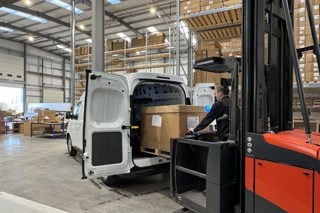Fleet operators have called for clarity on the future basis of vehicle taxation beyond the current system of CO2 emissions derived from the combined miles per gallon (mpg) figure.
A working group, led by the British Vehicle Rental and Leasing Association (BVRLA), and including vehicle manufacturer representatives, data providers and fleet operators, held a workshop to discuss the IT system and data implications of the introduction of the new Worldwide Harmonised Light Vehicle Test Procedure (WLTP).
The current New European Driving Cycle (NEDC) test regime will be phased out in favour of WLTP beginning this September, when WLTP is introduced for all cars gaining type-approval from that point.
In the longer term, the WLTP test will generate a larger number of CO2 values for different operational cycles and the figures for a particular vehicle will be more likely to vary according to any optional extras that are fitted.
The BVRLA claims there is still uncertainty over the way this more complex and variable vehicle manufacturer data will be shared accurately between data providers and leasing companies.
“The WLTP will have a big impact on our members,” said BVRLA director of member services Nora Leggett.
“We want to work with them and their supply chain partners to help ensure a smooth transition that has no negative impact on customer service,” she added.
John Pryor, chairman of fleet representative body ACFO, said: “We know WLTP is coming and that it will ultimately replace the NEDC regime. However, as yet we have no clarity from HMRC as to the timescale for when WLTP CO2 figures will be used as the basis for all vehicle taxation, including company car benefit-in-kind (BIK) tax.
“In addition to a timeline, as always ACFO would want announcements to be made as soon as possible so as much notice as possible is given of WLTP’s introduction to enable fleet decision-makers and company car drivers to plan. ACFO also requires clarity over where CO2 data in respect of WLTP should be sourced for P11D purposes – a car’s V5 document or somewhere else.
“Whatever the date of WLTP’s introduction for tax purposes, there will clearly be an overlap when fleet decision-makers are operating cars – and company car drivers are at the wheel of them – with taxes linked to either the WLTP or NEDC regimes. That’s because vehicle replacement cycles will straddle the date WLTP is officially introduced for tax purposes.
“ACFO, therefore, assumes that a move to using WLTP-based data will only occur following its official data for use by HMRC as new company cars are introduced. However, that also requires clarification.”
Pryor says that for a time this would add an increased layer of administration for fleet decision-makers as they manage company cars linked to both the existing NEDC regime and the new WLTP system.
But it is something they would have to cope with and, importantly, alert company car drivers to the change as they may see their BIK tax position change – and possibly increase due to a car’s higher CO2 figure – even if their new vehicle is similar to their outgoing model.
Pryor continued: “ACFO has already held briefings at regional meetings to alert members to the introduction of WLTP. While they know it is around the corner – and some vehicle manufacturers are already publishing WLTP CO2 and mpg figures for new models alongside NEDC ones – they don’t know when the new system will be adopted by HMRC.
“Therefore, there is little fleet decision-makers can do in the way of preparation and planning until they receive notice from HMRC as to when the Government department will adopt WLTP for tax purposes.”
Following an announcement on July 26 that the UK would be seeking to phase out new conventional petrol and diesel car sales by 2040, the calls for a detailed plan on how that would be achieved have intensified, and it is now likely there will be further details on this and future vehicle taxation in the autumn budget.



















Login to comment
Comments
No comments have been made yet.